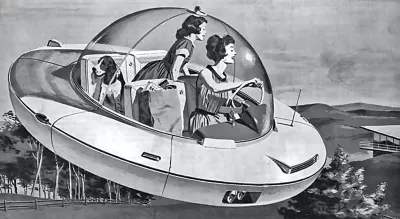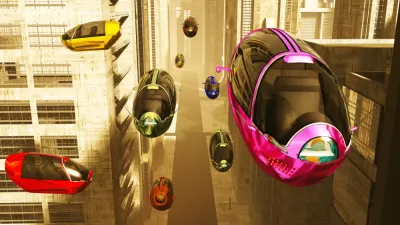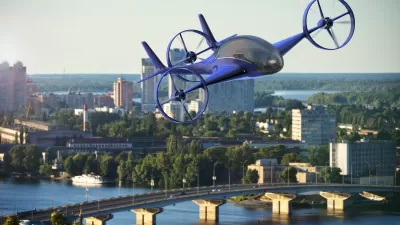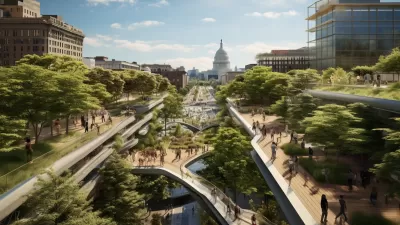Walker contemplates the implications of the science fiction staple that continues to fascinate and engage writers and technologists.

Musing on a tweet by Scott Edgar that asserts that "a sizeable share of contemporary science fiction is really just bad faith rationales for not building bus lanes," Jarrett Walker examines the concept of flying cars in Ada Palmer's "Terra Ignota" books, which take place in "a 25th Century world where automated flying Uber has crushed all other modes of transport, creating a dreaded concentration of monopoly power from which flow the crises that drive the plot."
In the books, conflicts are resolved by a system of "neutral justice." But, Jarrett writes, "a city that functions (rather than just symbolizes) needs a much finer shared web of legal and cultural systems. There must still be rules about where you can land a flying car, or what you can throw in a sewer drain that goes to the local river, or whether you can build a factory next to people’s homes. In the absence of such rules, we must imagine the libertarian urban world that the unrestrained flying car would make."
Jarrett questions whether "we should want to 'abolish geography', as so many transport gadget inventors have promised over the years," and how it would affect our conception of citizenship and civic engagement. "[I]n a world of such universal travel, [have] all these places become so identical that you might as well work from home?" In "a placeless society where you and your neighbor listen to different news sources to the point that you have incompatible views about reality," "would you still be able to cooperate about fixing the fence or agreeing on quiet hours?"
FULL STORY: Where Flying Cars Take Us: A Science Fiction Excursion

Trump Administration Could Effectively End Housing Voucher Program
Federal officials are eyeing major cuts to the Section 8 program that helps millions of low-income households pay rent.

Planetizen Federal Action Tracker
A weekly monitor of how Trump’s orders and actions are impacting planners and planning in America.

Ken Jennings Launches Transit Web Series
The Jeopardy champ wants you to ride public transit.

California Invests Additional $5M in Electric School Buses
The state wants to electrify all of its school bus fleets by 2035.

Austin Launches $2M Homelessness Prevention Fund
A new grant program from the city’s Homeless Strategy Office will fund rental assistance and supportive services.

Alabama School Forestry Initiative Brings Trees to Schoolyards
Trees can improve physical and mental health for students and commnity members.
Urban Design for Planners 1: Software Tools
This six-course series explores essential urban design concepts using open source software and equips planners with the tools they need to participate fully in the urban design process.
Planning for Universal Design
Learn the tools for implementing Universal Design in planning regulations.
Ada County Highway District
Clanton & Associates, Inc.
Jessamine County Fiscal Court
Institute for Housing and Urban Development Studies (IHS)
City of Grandview
Harvard GSD Executive Education
Toledo-Lucas County Plan Commissions
Salt Lake City
NYU Wagner Graduate School of Public Service





























